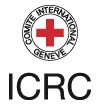10.08.2006
"we've all been revolutionaries from the beginning."

rebel soldiers in darfur nearly four months after the peace agreement was signed.
i worked at recycled sounds today, doing my usual saturday cataloging. i picked up a weeks-old copy of rolling stone magazine - the one declaring justin timberlake "the new king of sex" on its cover - and began thumbing through it.
page 58 brought me a feature that surprised me. it wasn't about the greatness of mick jagger and keith richards, nor about john mayer as 'rock's hot soul man,' nor about "how bush fumbled the war on terror." it wasn't even about the best fall tv, though all of these stories were teased on the cover.
the title of the story on page 58 read, "the tragedy of darfur," and contained the following byline:
fighting in sudan has killed at least 200,000. and now the man who was the best hope for peace has unleashed a new wave of violence.
the full-page image accompanying the story (unfortunately one i cannot find online) was one of two young rebel fighters - one holding a shiny firearm, perhaps an ak-47 - crouched before the camera's lens, much of their faces obscured by the cloth wrapped around their heads. behind them, a bright, barren desert, and what appears to be a man getting a haircut. just another day in darfur.
i kept reading, and the lede caught me.
there is generally only one reason anyone goes into a refugee camp to conduct interviews. at farchana, a united nations facility overflowing with more than 17,000 villagers from sudan, i imagine that reason hangs over me as clearly as if i were wearing a sign around my neck that read tell me about the worst possible moment in your life.
when i left work, i took the issue with me.
and i'm glad i did. the story covered points about the developments in the raging conflict in darfur - the genocide there - that other stories either unintentionally neglect or flat-out ignore.
dinaw mengestu's piece (his first for rolling stone, and an impressive one), a nearly-6,000-word feature on the humanitarian crisis, the political developments, the role of the u.s. and the international community as a whole and the breakdown of the peace agreement, as well as a detailed profile of minni arkou minnawi, the leader of the largest faction of the largest rebel movement in sudan, the sudanese liberation army (sla).
i've been reading - and, consequently, writing - about sudan for at least the past two years. search "sullivan" and "sudan" or "darfur" at dailynebraskan.com and you'll likely find a good number of columns addressing the issue, or at least using it to frame a relevant argument.
i also wrote a long comparative analysis of the foreign policies china, russia, algeria, france and the united states with regard to referring the sudanese case to the international criminal court. needless to say, i've followed this case. i've found it enraging, impossible. the manner in which the international community has approached this is akin to an auto crash on the highway. i simply can't avert my eyes.
but i never knew much about the sla. most accounts suggest that the civil war in southern sudan is entirely separate from the ethnic cleansing in the western darfur region. the conventional wisdom is that the janjaweed (loosely affiliated coalition of arab militias) were armed by the sudanese government to put down a different rebellion in darfur, and that these militias grew in number and mission to such a degree that the government could no longer control them (now that the janjaweed wear military uniforms, it's exceedingly clear that they haven't just run out of control - it's abundantly clear where their loyalties lie).
but this story puts a twist on that, and argues it well. the peace agreements, brokered by the united states and intended to bring stability to the region and end the killings, only included one faction of the sla. this meant a schism within the rebel group, and infighting that led to thousands of deaths.
the fractious nature of the new sla means less of a focus on fighting the janjaweed and more emphasis on regaining control of the rebel movement itself. this has brought the rebels to pillaging and destroying villages with potentially sympathetic residents, conscripting the young and convincing them to fight (a la uganda) and committing acts of murder and torture against civilians.
the burning irony: the peace agreement has further destabilized the country, breaking apart the very coalition that the united states was hoping would lead the country toward calm.
aside from the victims' stories, mengestu intereviewed some of the rebel soldiers, and, given a choice between the two, well, i don't know which is more upsetting.
"we've all been revolutionaries from the beginning," declares abubakar adam, who wears his short hair twisted into tiny locks. "all the civilians are revolutionaries. we don't have armies like you do." i ask them what they will do if peace ever comes to darfur. all but one say the same thing, without the slightest hesitation: school. they will all go back to school.
read the story. it includes powerful first-hand accounts of personal loss and paralyzing fear. it successfully juxtaposes the way the conflict has developed politically with the affects these changes (or stagnations) have had on real, live people, ones who have lost sisters and nephews.
it rounds out very cynically, almost hopelessly, by looking at minnawi and his new hypocritical role in sudan. mengestu gets his point across, and it's clear as a bell. in place of my ruining the story any more than i already have... read.
story: the tragedy of darfur
photos: eight reasons bush should drop everything and save darfur
:: posted by Collin, 3:08 AM





